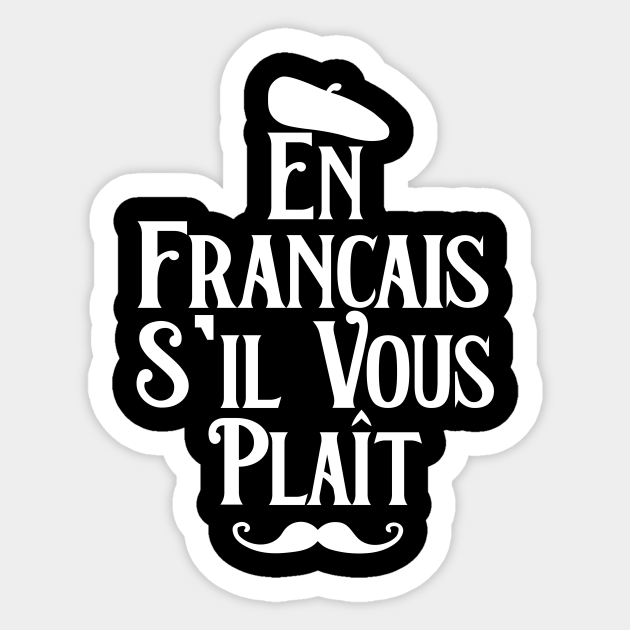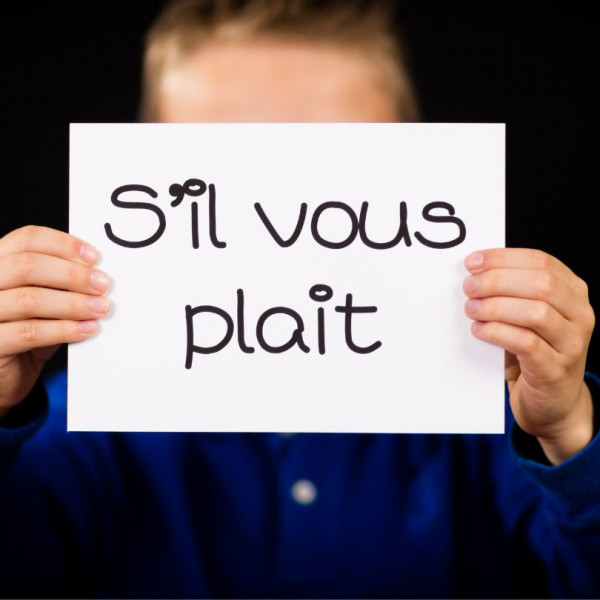Ever wondered how a simple phrase can unlock a world of cultural nuance and linguistic grace? "S'il vous plat," the ubiquitous French expression for "please," is much more than a polite request; it's a window into the heart of French etiquette and communication.
In the tapestry of language, certain phrases weave themselves into the fabric of everyday life, acting as bridges between cultures and embodiments of social grace. "S'il vous plat" stands as a prime example. While its literal translation, "if it pleases you," may seem straightforward, the phrase's usage and significance extend far beyond a simple request. It is a cornerstone of French politeness, a marker of respect, and a subtle indicator of context. Its origins are deeply rooted in the formalities of French society, reflecting a historical emphasis on deference and consideration. Even today, in regions of eastern France and Belgium, it's used not just to say "please," but also as a gentle way of offering something, akin to "here you go."
The evolution of "s'il vous plat" over time highlights the dynamic nature of language. The phrase has been adapted, abbreviated, and reinterpreted, yet its core meaning of politeness remains constant. The existence of variants like "s'il te plat," used in more informal settings, underscores the importance of choosing the right tone for the situation. Beyond its direct translations, "s'il vous plat" plays a role in broader communication. It's found in instructions, requests, and even embedded within common phrases, demonstrating its versatility. In the world of business and formal interactions, its use remains an essential display of courtesy.
- Hdhub4u Gujarati Movie Download Your Ultimate Guide To Streaming And Downloading Movies
- Yupmoviecom Your Ultimate Streaming Destination For Movie Enthusiasts
The subtle differences in how "s'il vous plat" is deployed can provide valuable insights into the intricacies of French culture. The use of "vous" versus "tu" (formal vs. informal "you") is a key factor in determining which version of the phrase to use. "S'il vous plat" is typically reserved for interactions with people you don't know, those older than you, or in more formal situations. Conversely, "s'il te plat" is suitable for close friends, family, and children. This distinction highlights the inherent respect for hierarchy and social structure in French society. Knowing the nuances of these differences can prevent potential misunderstandings and ensure that your communication aligns with local customs.
In a world that increasingly embraces global interaction, understanding expressions such as "s'il vous plat" holds particular significance. It offers not just linguistic knowledge, but a deeper understanding of cultural values. It goes beyond mere translation, revealing the core values of politeness, respect, and consideration that underpin French social dynamics.
Moreover, the phrase's incorporation into other languages, such as its adaptation into the English acronym "RSVP" (Rpondez S'il Vous Plat - "Respond, Please"), showcases its influence and global relevance. This cultural crossover further expands the context and meaning of the phrase, illustrating its ability to cross linguistic borders.
- Exploring The World Of Mydesi49net Your Ultimate Guide
- Skymovieshdin 2024 Your Ultimate Streaming Destination
Let's delve a little deeper into the various contexts of this essential French phrase.
The core function of "s'il vous plat" is to express politeness when making a request. Whether asking for directions, ordering food, or seeking assistance, this phrase adds a layer of courtesy to your communication. For example, "Un demi, s'il vous plat!" (A half pint, please!) and "Vos papiers, s'il vous plat." (Your papers, please.) exemplify its use in everyday scenarios. When seeking information, saying "Pour aller Strasbourg, sil vous plat?" (How do I get to Strasbourg, please?) is a perfect example of using the phrase to add politeness to a query.
Beyond simple requests, "s'il vous plat" serves as a signifier of formality. In business interactions, professional settings, and when addressing strangers, the use of "s'il vous plat" is nearly indispensable. It sets a tone of respect and deference, which is often crucial for making a positive impression. For instance, when requesting a waiter's attention, saying "Encore un instant, s'il vous plat" (Just a moment, please) is considered the appropriate and courteous thing to do.
In a slightly different context, "s'il vous plat" may appear at the end of a request, and is just as important as the initial request. This usage highlights the importance of a polite end to the communication. Even in the instance of a simple affirmative, it would still be courteous to append the phrase. If you're using a more casual tone, it may be replaced with "s'il te plat." In a more direct tone, this can also take the form of a plea for assistance.
The use of the phrase also indicates the level of familiarity. When speaking with someone known on a personal level, the informal "s'il te plat" is used. This variation carries the same meaning of politeness, but with a slightly different emphasis depending on the level of closeness.
Another key aspect is the absence or presence of the hyphen. This is not relevant in modern French orthography, as it's been officially recommended that there not be a hyphen between the "s" and the "il". The exception to this rule is in abbreviations, such as "svp" (s'il vous plat) or "s'il te plat" (stp).
In English, we can use "please" both as a polite request, and also to instruct someone. We can see this with examples such as "Could you pass the salt, please?" which is a question, and also "Please fill out this form," which is a direct instruction. The same dual nature can be found in the French language. The use of "s'il vous plat" makes communication both polite and clear.
The flexibility of "s'il vous plat" in its usage means that it goes well beyond the simple, literal translation. It encompasses the French respect for formality, the importance of nuance, and the subtle art of social interaction.
The phrase is also important to understand because of its adoption in English through the acronym "RSVP," which stands for "Rpondez S'il Vous Plat" (Respond, Please). The presence of this phrase in common English usage speaks to its broad cultural adoption.
Mastering the use of "s'il vous plat" is a gateway to a more profound understanding of French culture. By embracing this small, yet potent phrase, you open yourself to a world of more meaningful interaction, enriching both your linguistic abilities and your social skills.
In sum, "s'il vous plat" is not simply a linguistic element; it's a key that unlocks the doors to enhanced communication, cultural sensitivity, and an appreciation for the finer points of human interaction. Its use in various contexts, from requesting items to directing people, demonstrates how multifaceted it is. For example, imagine youre traveling in France and approach a local for directions. By using this phrase, you will be met with a warmer, more receptive tone. This can lead to a richer, more enjoyable experience of the culture.
The use of "s'il vous plat" is also often associated with the new orthography of the French language, which states that the accent circonflexe above the "i" in "s'il vous plat" is not necessary, although it is still widely used in the French language.
Finally, remember that using "s'il vous plat" is about more than just the words, its about adopting a mindset that values politeness, respect, and understanding in all interactions. Doing this can help you gain a deeper connection with the language and culture, and will improve any experience you have interacting with French speakers.
- Bollyflix 4u Movies Hindi Dubbed Your Ultimate Guide To Bollywood Entertainment
- Bollyflix Movie Download In Hindi Your Ultimate Guide To Bollywood Entertainment


